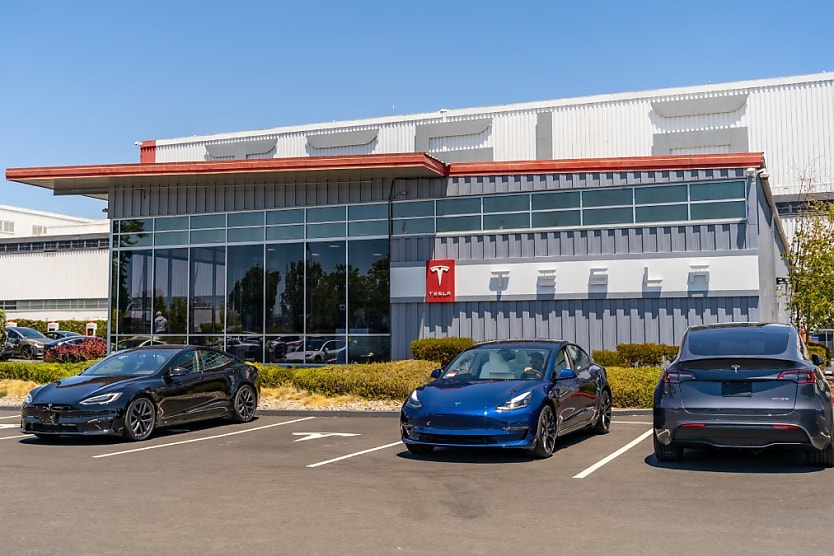What Elon Musk got wrong about trade unions
SHARE THIS ARTICLE

In a much-quoted interview, Elon Musk said he took issue with the idea of trade unions. We spoke with an academic to see how his analysis sizes up.
As the only US car manufacturer without union representation for its workers, Elon Musk’s Tesla has been on the United Auto Workers’ (UAW) – the US auto industry’s labour union – radar for some time.
In 2016, for example, the UAW tried to unionise the company’s so-called “factory of the future” in Fremont, California, whose workers had complained of “gruelling pressure” amounting to fainting spells, dizziness, seizures, abnormal breathing and chest pains - making the factory something of a hot spot for local paramedics. The unionisation effort was ultimately unsuccessful, but the UAW has not lost interest.
Last year, the UAW managed to find success in taking industrial action against Detroit’s big three automakers: Ford, Stellantis, and General Motors. At a televised New York Times DealBook Summit, Mr Musk was asked what he thought of the mounting pressures on Tesla to unionise. His answer went beyond the specific, to the very idea of trade unions as an institution.
“I think it’s generally not good to have an adversarial relationship between … one group at the company and another group,” said Mr Musk.
“I disagree with the idea of unions perhaps for a reason that is different from what people may expect, which is I just don’t like anything which creates, kind of, a lords and peasants sort of thing, and I think the unions naturally try to create negativity in a company.”
‘Lords and peasants’
Most coverage of these comments – warranted or not – consisted of little more than finger-pointing, identifying the irony of the world’s richest man detesting class divide. However, we spoke with Associate Professor Chris F Wright of the University of Sydney, who added some depth to the remarks. In his opinion, they represent a flawed idea that industrial relations are a zero-sum game.
“There’s been no shortage of research produced around the importance of workers having a say in the decisions that affect them and how, yes, this is good for workers, but it’s also good for businesses,” he said.
“It can help businesses to identify problems and to resolve them efficiently and effectively. It can often help to identify better ways of doing things within the workplace in ways that can increase productivity.”
There’s no hiding the fact that industrial relations are often, if not always, adversarial. Generally, employees push for higher pay and better rights, while employers push to extract more value out of their workforce at lower costs.
Just as our political and economic systems progress by generating solutions from competing interests, so does our industrial relations system. Employers and employees share an interest in the success of their business, said Dr Wright. However, there are distinct differences.
“This is often reflected in negotiations over things like wages whereby a business has to be distributing their profits in a way that is not only fair but also economically responsible,” he said.
“But there are those issues that can only ever be sorted out collectively through a process of negotiation, or bargaining. In any economic exchange, there are always going to be points of disagreement. That’s where things like strikes will manifest.”
However, just because the vehicle or method of progress is adversarial does not mean that a win for employees is necessarily a loss for the employer. It's not as simple as that.
For instance, said Dr Wright, a unionised workforce can generate what he refers to as a stronger “collective voice”. In essence, a higher level of input into company decisions.
“It typically increases workers’ attachment to their jobs, which can help to address those challenges around staff recruitment and retention, which are important for shortages,” he explained.
Research cited by Dr Wright in an article he wrote on the topic found that unions can help boost worker engagement, thereby delivering higher company innovation and productivity.
While Mr Musk was correct in implying that industrial relations can be adversarial in nature, he seemed to miss the larger point.
“I don’t think that kind of characterisation is a mature way of thinking about things. It can lead to pain in the short term, but it can often mean a gain in the long term,” said Dr Wright.
“Hopefully, that’s what we will see with things like the DP World dispute, for example. Yes, there’s a conflict at the moment, there’s disagreement, but hopefully that should lead to a better and more sustainable outcome.”
RELATED TERMS
Industrial relations is the management and evaluation of the interactions between employers, workers, and representative organisations like unions.
Nick Wilson
Nick Wilson is a journalist with HR Leader. With a background in environmental law and communications consultancy, Nick has a passion for language and fact-driven storytelling.

